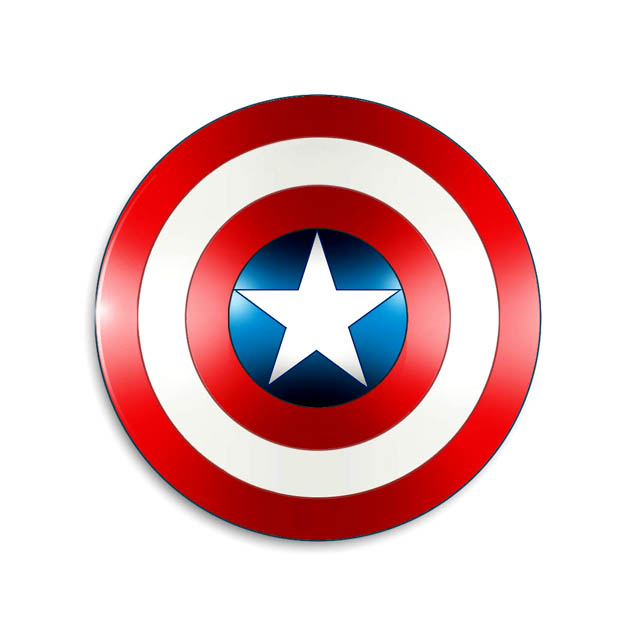 Around the Turn of the Millennium, Marvel experimented briefly with the idea of some slightly “off-brand” versions of certain characters under the banner (pardon the pun that will make itself clear soon) Startling Stories. The idea was, in a nutshell, to take some characters and let a very talented creative team go at them without the burdens of continuity. If the notions panned out, they could be folded into the “official” continuity. If not, well, at least we got a cool story, right?
Around the Turn of the Millennium, Marvel experimented briefly with the idea of some slightly “off-brand” versions of certain characters under the banner (pardon the pun that will make itself clear soon) Startling Stories. The idea was, in a nutshell, to take some characters and let a very talented creative team go at them without the burdens of continuity. If the notions panned out, they could be folded into the “official” continuity. If not, well, at least we got a cool story, right?
The first of these was Startling Stories: Banner (see, here’s that pun I promised you). It was a very unvarnished look at the Hulk by Brian Azzarello and Richard Corben. Slightly off-kilter, not entirely bound by continuity, but familiar enough that the differences made the story more powerful.
I came up with two Startling Stories notions of my own. The first was Startling Stories: Rogers. Yes, it was my own weird take on Captain America.
I actually have the original springboard proposal I wrote, so rather than recap the idea, I’ll just present it to you as I originally wrote it back in 2001-ish. And then I’ll be back at the end to talk a little more about it.
Steve Rogers knows all there is to know about being a Captain.
Steve Rogers is about to learn what it means…
…to be America.
STARTLING STORIES: ROGERS
In a hidden government compound in the year 2002, the men in their black, off-the-rack suits once again wake up the Captain. They bring him into the briefing room, remembering the cautions pounded into their heads:
“Do not engage in idle conversation with the Captain.”
“Never answer questions not directly related to the mission at hand.”
“Most important of all, never forget that Captain Rogers thinks that it’s 1947…”
During World War II, Steve Rogers volunteered to be injected with the Super-Soldier Serum, a chemical formula that imbued him with fantastic powers and abilities, making him a one-man army for Uncle Sam.
Do you really think they were going to let that slip away?
Hitler, the men in black tell the Captain, has new allies. He has made an agreement with forces in Colombia to import a deadly drug into the United States. He’s feeding our children poison, Captain Rogers. Something called…cocaine.
Don’t pay attention to their strange clothes and their odd weapons. They may even try to use psychological warfare by telling you bizarre lies, like Hitler is dead, or it’s already past the year 2000.
Don’t listen to them, Captain Rogers. Just do your patriotic duty. Interdict these drug smugglers and come back to base…
So begins Startling Stories: Rogers, an intense, ultra-modern take on Captain America by way of conspiracy theories and the dark side of the American Dream.
In 1945, as it became obvious that the Allies would win World War II, the U.S. government realized that with the end of the war they would also lose one of their greatest assets: the only man to survive Operation: Super-Soldier, Steve Rogers. With hostilities at an end, Rogers would be free to return to civilian life, beyond the control of the military.
So they began a grand cover-up. Rogers was placed in cryogenic freeze (“To help maintain your altered metabolism,” the doctors assured him) in a secret military installation. When needed—by Military Intelligence, by the CIA, by the NSA—Rogers would be thawed, awakened, subjected to briefings that convinced him that it was still the 1940’s…
And then sent out on covert missions against “Hitler” and the “Nazi menace,” threats that had been eliminated years ago.
“Wet works” behind the Iron Curtain. Black ops in Soviet-controlled territories. Even ultra-classified missions in the U.S. itself, infiltrating left-wing groups in the sixties and taking out militias in the nineties. The brainwashed “Captain America” has done it all through the post-War era, the ultimate Cold Warrior, still fighting World War II after all these years.
But then comes a day in the year 2002, when Rogers is sent to combat a growing narco-terrorist cell in South America. On the way, his plane hits rough weather and crashes. Leaving Steve Rogers as the sole survivor…
Loose in an America he could never begin to imagine.
With a wink and nod towards traditional continuity (his code-name of Captain America, his CIA contact named Bucky, cryogenic suspension, and more), Startling Stories: Rogers re-imagines Captain America for the twenty-first century, recasting him as an icon for a nation that is troubled, solipsistic, and deeply cynical. The question at its core: Can the values of the so-called “Greatest Generation” still be brought to bear at the Turn of the Millennium? Or is Captain America’s only function in the modern world to hold a mirror up to what has become a society of extremists and thought-terrorists?
As Rogers attempts to make sense of the new world he finds himself in—as well as the true nature of the government that lied to him—we will learn the answers to these and other questions. By the end of the mini-series, we will have delved deeply into the meaning of America, how it has changed in the years since World War II, and what place a man like Steve Rogers—and the government that spawned him—can possibly have in such a world.
We will also tease the audience with a notion that would be utterly taboo in the Marvel Universe: Is it possible that Steve Rogers (a man born in the 1920s and raised in the 1930s) is a racist?
Startling Stories: Rogers—Hold onto your flags, and get ready for the ride of two centuries.
Whew!
So, let’s get that lingering question out of the way first: Nah, of course Cap isn’t a racist! But it occurred to me that he would be completely ignorant about the progress made in terms of race since World War II. So, I thought I would play around with this and have some fun by showing him being startled and shocked by, say, an interracial couple, or blacks and whites sharing a meal at a restaurant. He wouldn’t say anything, but it would be obvious that was stunned.
His eventual guide to the 21st century (an ex-CIA operative, natch) would notice his reactions, put two and two together…and assume the old man’s a racist. He would put Cap through a crash course in recent racial history, culminating in a video of Martin Luther King Jr.’s “I Have a Dream” speech.
And Cap would turn from the screen with tears streaming down his face and shock his handler (and, if I’d done my job right, the reader) by saying, “This is wonderful. I always wanted the Negroes to have equality!”
The handler would say, “Well, the sentiment is right. Let’s work on the language.”
Most interesting to me from the remove of many years is that my approach here parallels that taken with the Winter Soldier, created years after I conjured this mess. (As with Mark Waid, apparently Ed Brubaker and I are on a similar psychic wavelength.)

